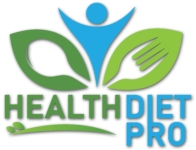Have you considered making a type of vegetarian diet? Then you should take into account some important aspects to have the vitamins and nutrients you need. For this, the ideal is to put yourself in the hands of a professional since they will be the one who can best help you. In this article we spoke with the nutritionist Paola Cóser to find out some useful tips that you should know before following a vegetarian diet. What substitutes are there for meat? What types of vegetarian diets exist? We tell you!

How to start a vegetarian diet: lose weight?
- Many people think that stopping eating meat overnight could affect their health. In fact, they believe that if they stop eating meat they could be deficient in some nutrient. According to Paola Cóser, this is totally false: “the important thing about a transition is to plan adequate nutrients. You can stop eating meat from one day to the next.” According to the nutritionist, the most difficult thing for vegetarians is having to give explanations or being able to find vegetarian foods and restaurants, although today there are more and more.
- There is no strict protocol to make a transition from an omnivorous diet to a vegetarian one, because each person is different. Something generalized that we can follow would be, first of all, withdraw red meat, although it is true that the contribution of iron that the body needs through other foods of plant origin must be taken into account. Then the chicken and pork will be left, and finally the fish. In this sense, along with meat, you should try to stop consuming the sausage since they are processed meats that there is no need to eat. Then continue with the dairy products (milk and yogurt) and finally the cheese, since it is the most difficult thing to leave because it is very rich and addictive. The reason? The cheese it contains a substance called casomorphin, also present in caffeine, very concentrated, which makes its removal difficult.
- In this sense, many people have the belief that following a type of vegetarian diet loses weight. And Paola Cóser tells us that this is a myth, since you don’t necessarily lose weight. “What happens is that when there is a change in diet, there is often a change in consciousness regarding it,” she says, “processed products are put aside, focusing on self-care.” This makes you lose weight, not by following a vegetarian diet, but by eating products that do not provide more calories. The important thing is to design the diet well, with good planning so that there are no nutritional deficits.
Different types of vegetarian food
- As we said, food planning is crucial when following any diet. In this case, we must differentiate the different types of vegetarians that may exist, the difference between vegan and vegetarian being clear. A vegan consumes everything plant-based, without dairy, eggs, fish, or chicken. And they also tend to consume clothing or cosmetics that are not of animal origin, making a vow to ethics and animal care.
- As for the vegetarian diet, there are many types depending on each person and each lifestyle, but in general they differ from vegans in that they can occasionally consume something of animal origin, and they do not tend to use clothing or cosmetics of origin not animal. For example, a flex vegetarian may occasionally consume some meat; an ovo lacto vegetarian consumes everything of vegetable origin, except the egg and milk; a dairy vegetarian consumes dairy; an api vegetarian consumes products such as honey and everything that comes from the bee; a fish-vegetarian also eats fish…
- It should be noted that the vegetarian diet is suitable for all types of cases and people, provided that proper planning is followed. It has to be well designed, especially in specific cases such as during pregnancy since iron, folic acid, calcium and omega 3 are needed, essential for the development of the baby. What is done is an adjusted planning to know if the necessary nutrients are being consumed. This type of diet is not bad for your health, it does not have any risks and, in fact, it has many benefits.
If you don’t want to eat meat: what vegetable substitutes can you eat?
- For meat we mainly find substitutes of vegetable origin in legumes, nuts (cashew nuts, walnuts…), seeds and whole grains. There are different types of proteins, some are found in foods such as soybeans and their derivatives, chickpeas, beans… In these cases, the proteins are complete, contain the amount of amino acids we need, and can be consumed without problem as a substitute for protein of animal origin.
- It should be noted that the fact that a protein is complete is not the same as its protein density. That is, in 100 grams of meat, we find, for example, 20 grams of protein, while in 100 grams of legumes we can find 10 grams of protein depending on the type of legume it is. Sometimes what is not enough is the protein density, but supplementation is not strictly necessary, although it will depend on each person and their lifestyle. For example, an athlete would need a supplement.
- Now that you know some tips when it comes to following a vegetarian diet, remember that the ideal is to contact a professional or nutritionist since they will be the one who can best plan your diet according to your needs.
